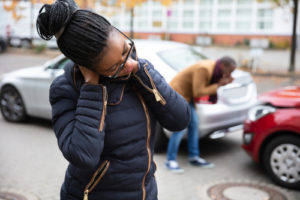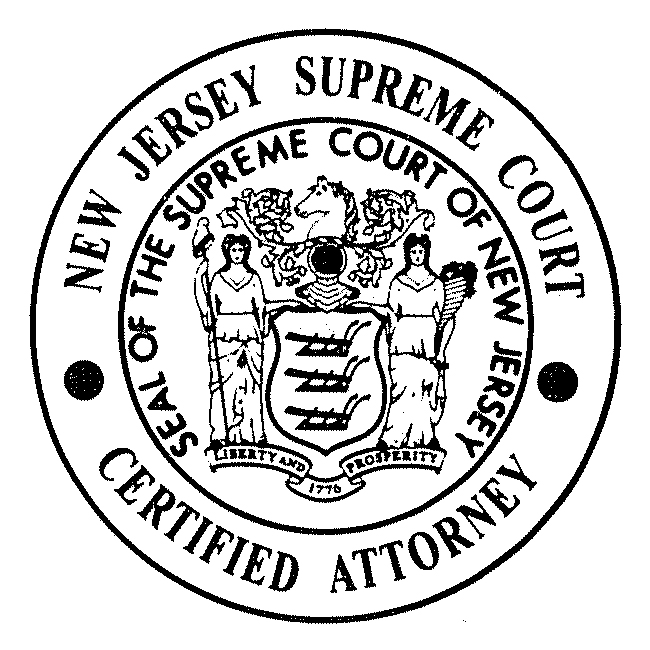How to determine fault for a car accident

Determining Fault in New Jersey Car Accidents
In order to pursue a claim for compensation for injuries and losses resulting from a car accident, it is necessary to determine who was at fault for the accident and their respective share of fault. In many car accident cases, the parties vigorously dispute who was at fault for the accident and/or what the respective proportions of fault should be. Below are some of the important principles for determining fault in car accident cases.
Why Fault Is Important in Car Accident Cases
The party or parties who are at fault for a car accident are legally responsible to pay compensation for the damages of other parties involved in the accident. In addition, if the party making a claim for compensation is partially at fault for the accident, it is necessary to apportion fault to determine if the claimant is eligible for compensation under the state’s law and how much compensation they are entitled to, since the law reduces compensation from a car accident claim by the claimant’s own share of fault for the accident.
Source of Evidence to Determine Fault
When a claim is made from a car accident, the parties’ insurance companies and attorneys will look at various sources of evidence to determine which party or parties were at fault for the accident and calculate respective shares of fault if more that one party bears responsibility.
Police Accident Reports
One of the most important pieces of evidence for determining fault in a car accident is the police accident report. When police are called to the scene of a car accident, officers will complete an accident report. This report will include statements from the parties involved in the accident and any other eyewitnesses, and will note whether any driver was cited for a traffic violation for the accident. The report may also state which party or parties the authoring officer believes are at fault for the accident. Insurance companies, courts, and juries often give great weight to the facts and conclusions of police accident reports. That is why, if you have been involved in a car accident where the police were called to the scene, that you obtain a copy of the accident report, if any, and review it to make sure there is no inaccurate information. If you find any inaccuracies in the report, you can ask for an amendment or a supplement to the report be made.
Traffic Laws
Traffic laws are also an important source for determining which party is at fault for a car accident. A driver who is breaking traffic laws immediately prior to an accident is often responsible for causing the accident, or at least bears some share of fault. Important traffic laws in car accidents include:
- Following at a safe distance. In a rear-end collision, the general rule is that the rear vehicle is responsible for the accident, since the law requires all vehicles to follow at a distance sufficient to safely stop in all circumstances, including when the front vehicle suddenly brakes hard.
- Left-hand turns. A vehicle making a left-hand turn that hits an oncoming vehicle is generally deemed to be at fault for the accident, since the law requires left-turning vehicles to grant the right of way to oncoming traffic. There are certain circumstances where an oncoming vehicle may bear some fault, such as if the oncoming vehicle was speeding or ran a red light.
In any car accident where one driver is cited for a traffic violation, that citation can be used as evidence of the driver’s negligence.
Photographs and Physical Evidence
Finally, photographs of the accident scene or of the vehicles involved in the accident may be important for accident reconstructionists to recreate a model or simulation demonstrating how the accident occurred and who was responsible.
Admission of Fault
Finally, in some car accidents, one driver may admit fault for the accident. This may be due to the fact that the driver recognizes he or she was responsible for the accident, or he or she may simply perceive himself or herself to be at fault without a full understanding of the facts and circumstances of the accident. Insurance companies and defense attorneys will often jump on a driver’s admission of fault, so it is advisable not to admit fault at the scene of the accident.
Contact a Jersey City Personal Injury Lawyer to Discuss Your Car Accident Case in NJ
Did you or a loved one sustain serious injuries due to a car accident in New Jersey? Don’t let the medical bills pile up while you wait for the negligent party or their insurance company to do the right thing. Right now, you need an aggressive personal injury attorney on your side, fighting to get you the compensation you need, want, and deserve. A skilled Jersey City NJ Accident Attorney at Team Law represents clients injured because of car accidents in Perth Amboy, East Orange, Clark, New Brunswick and throughout New Jersey. Call (866) 917-5611 or fill out our online contact form to schedule a free consultation about your case. We have an office conveniently located at 136 Central Avenue Clark, NJ 07066, as well as offices in West New York, Perth Amboy, Edison, Summit, Newark, New Brunswick, Orange, Plainfield, and Jersey City.
The articles on this blog are for informative purposes only and are no substitute for legal advice or an attorney-client relationship. If you are seeking legal advice, please contact our law firm directly.
 CALL NOW
CALL NOW






